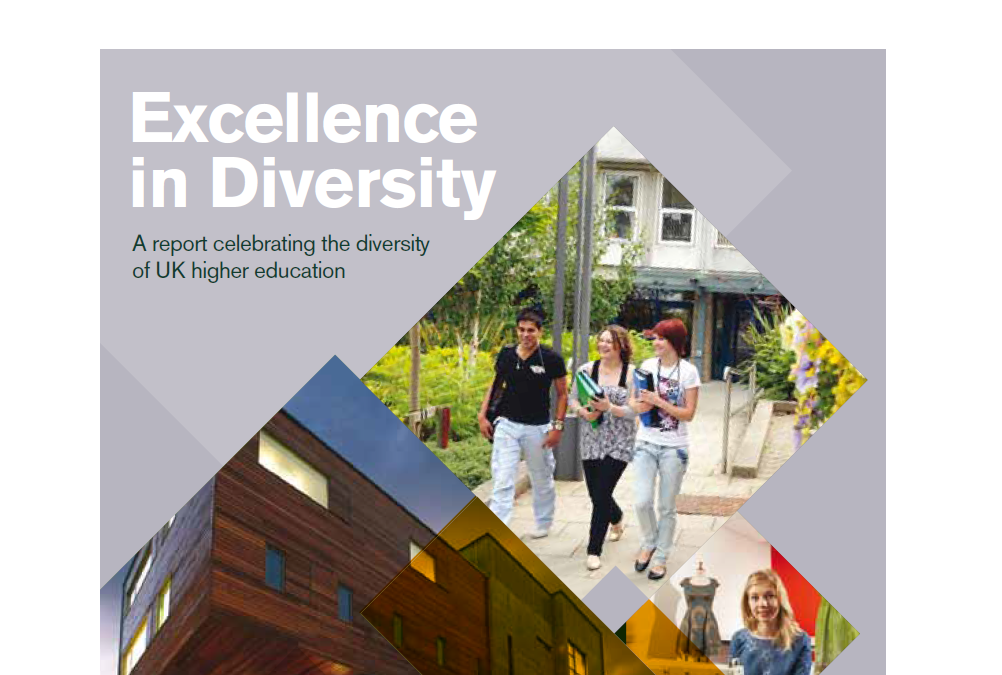GuildHE today publishes a report – Excellence in Diversity – celebrating the diversity of UK higher education.
Excellence in diversity – Executive Summary
Institutional diversity is key to UK economic growth and productivity
Universities with long established specialisms in areas of high economic demand can play a key role driving up growth and productivity in the UK economy, according to a new report launched today. The report, “Excellence in Diversity”, written by Prof Paul Kleiman of Ciel Associates for GuildHE, one of the two formal representative bodies of UK higher education, highlights the outstanding contribution of the UK’s smaller universities, and regionally focused and specialist institutions to the nation’s economic, social and cultural prosperity.
In areas of high economic demand, including the creative, agricultural and digital industries, specialist and regionally focused universities have particularly strong and close partnerships with specific professions, small and large businesses and whole industry sectors. A characteristic of these institutions is their engagement with practicing business people and profession and industry experts to shape and deliver teaching and to inform their research.
This understanding of and collaboration with business and industry means graduates from these institutions have an outstanding record for launching successful careers. According to official figures, specialist and/or smaller institutions make up half of the top 30 UK universities for graduate employment.
There is also a strong tradition of applied research, externally judged as high quality, which has significant economic and social impact. In the 2008 Research Assessment Exercise and the 2014 Research Excellence Framework, research carried out in smaller universities, regionally-focused and specialist institutions was judged as world leading or excellent in areas including agricultural sciences, creative, performing and visual arts, education, humanities, health and ageing, sport, technology, and theology.
GuildHE institutions have a proud track record as drivers of social mobility, and provide opportunities to students from low participation neighbourhoods, disabled students and students from non-traditional backgrounds. The sense of community in smaller, regionally-focused and more specialist institutions contributes to high levels of student satisfaction and low levels of student drop out.
Gordon McKenzie, GuildHE CEO, said,
“Following Universities Minister Jo Johnson’s speech setting out his plans for higher education, it is timely that we are publishing our report today. The Minister’s intentions for the Teaching Excellence Framework align very well with the missions of GuildHE’s member institutions – welcoming students from a range of backgrounds, supporting their progression to graduate jobs, putting the status of teaching on a par with research and stimulating a diverse HE market.”
Professor Joy Carter, Chair GuildHE, Vice Chancellor of the University of Winchester, said,
“Higher education in the UK has a key role to play in helping to drive the national priority of economic growth and improved productivity. GuildHE institutions, with their expert focus on subjects, industries and their regional economies are extremely well placed to combine academic and vocational learning to equip a twenty-first century workforce with the high level, high quality skills in demand.
“The UK’s modern university sector is made up of a range of universities with a range of strengths. The variety and choice offered by this diversity is attractive to students and employers and is a critical factor in the UK’s global reputation for high quality higher education. UK universities are so strong partly because they are so diverse.
“It is important the nation maximises the benefits to be gained from every part of the HE sector; and as the Government considers important spending commitments for the new Parliament, GuildHE is highlighting the outstanding contribution smaller, specialist and regionally focused universities make to economic, social and cultural life in the UK.”
Click here to read the Excellence in diversity – Full report 2 July 2015

